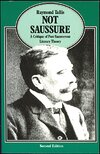Raymond Tallis
Autor(a) de The Kingdom of Infinite Space: A Portrait of Your Head
About the Author
Raymond Tallis is a philosopher, poet, novelist and cultural critic and was until recently a physician and clinical scientist.
Image credit: This is the image at Raymond Tallis' website
Obras por Raymond Tallis
Brocklehurst's Textbook of Geriatric Medicine and Gerontology (Brocklehurst's Textbook of Geriatric Medicine… (1998) 29 exemplares
The Enduring Significance of Parmenides: Unthinkable Thought (Continuum Studies in Ancient Philosophy) (2007) 6 exemplares
Psycho-electronics: Or a Guide, in the Form of a Lexicon, to the Psuedo-science of Cognitive Mechanics (1994) 3 exemplares
de Vinger / druk 1: de mens en zijn wereld verklaard aan de hand van de wijsvinger (2010) 1 exemplar
Associated Works
From Two Cultures to No Culture: C. P. Snow's 'Two Cultures' Lecture Fifty Years On (2009) — Contribuidor — 8 exemplares
Etiquetado
Conhecimento Comum
Membros
Críticas
Prémios
You May Also Like
Associated Authors
Estatísticas
- Obras
- 44
- Also by
- 3
- Membros
- 747
- Popularidade
- #34,028
- Avaliação
- 3.4
- Críticas
- 6
- ISBN
- 127
- Línguas
- 2
- Marcado como favorito
- 1
















If you read Tallis's earlier works, such as In Defence of Realism or Not Saussure, there is already an oppositional, iconoclastic tone on display. In those works, however, it is somewhat counterbalanced by the fact that Tallis has a reasonable point to make about the shortcomings of theory. Theorrhoea and After, by contrast, has stripped away much of that adventurous sense of critique and instead turned into an unadulterated diatribe of anger and resentment.
A lot of what Tallis includes in this volume he has published elsewhere. I mostly read this book for its chapter on Jacques Lacan - "The Strange Case of Jacques L." - which merely restates the points from Not Saussure about the problems of the mirror stage, together with complaints about Lacan's "unreadable" style and accusations that he is only famous because he hoodwinked people with his personal charisma. You know what? Both those things are true, Prof. Tallis, but there is even *more* to Lacan than that, as a number of recent groundbreaking works inspired by Lacanian ideas have shown.
Tallis's position, though, is that if he doesn't like or understand it, then no one should. There is so much arrogance and self-righteousness in both his rhetorical style and his grumpy-old-man opinions, many of which are as baseless and subjective as the positions he attacks, that it becomes impossible to take him seriously. I mean, just look at his title: "theorrhoea," a combination of "theory" and "diarrhea"? That kind of arrogant contempt tells you everything you need to know about the man and his work.… (mais)